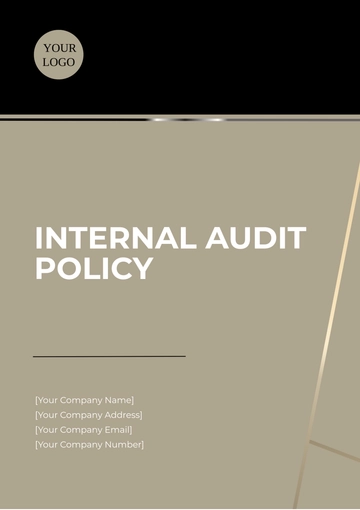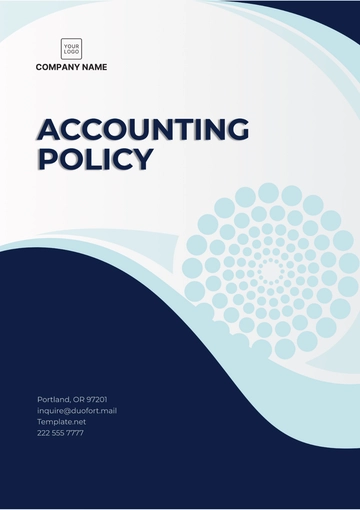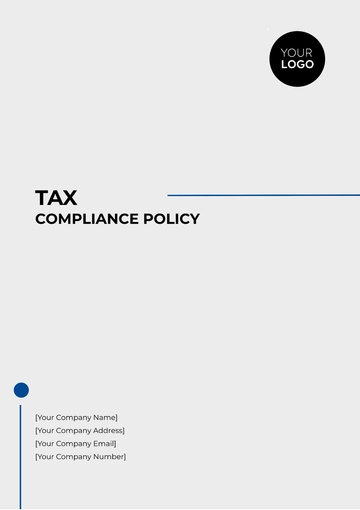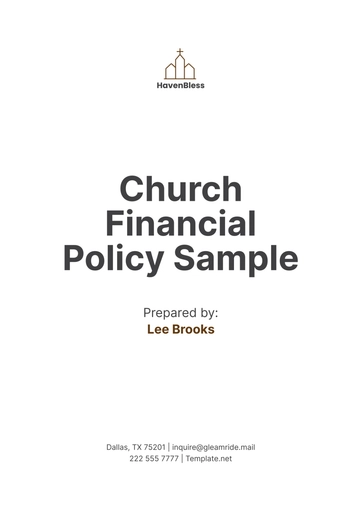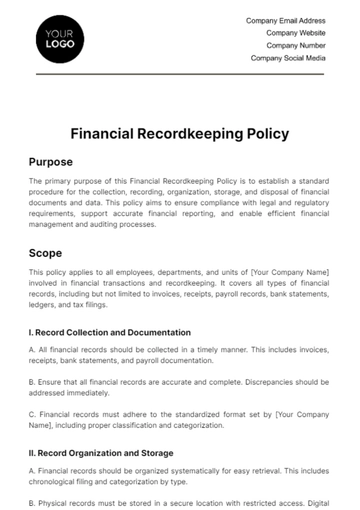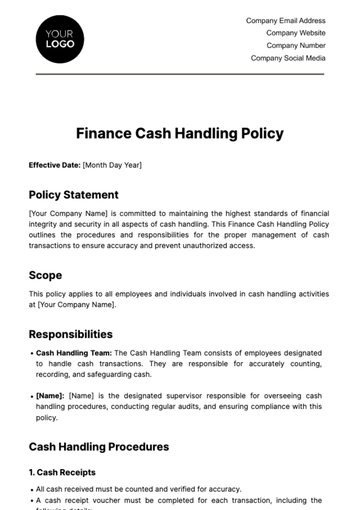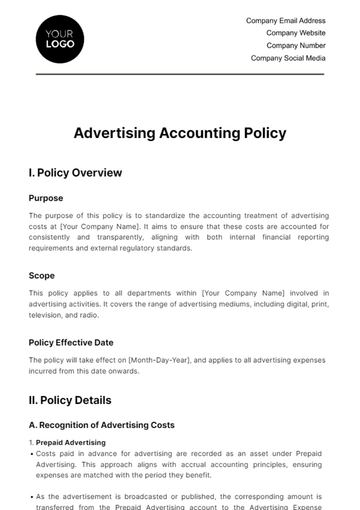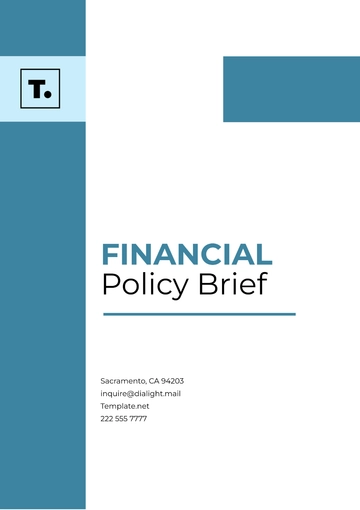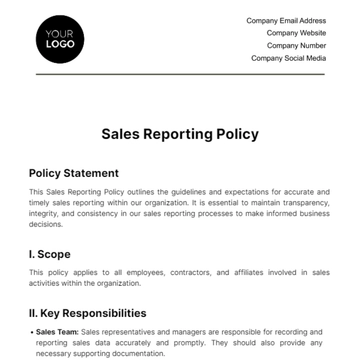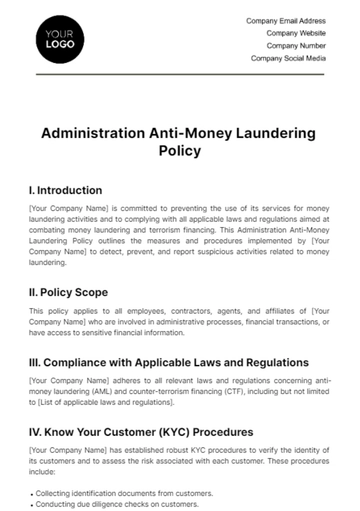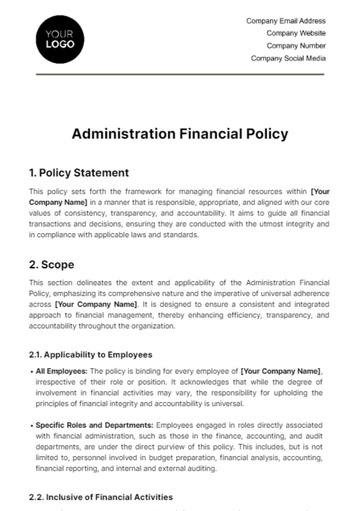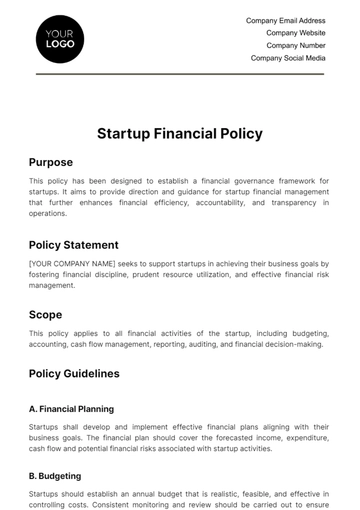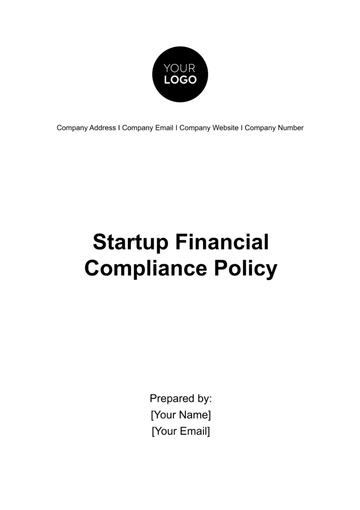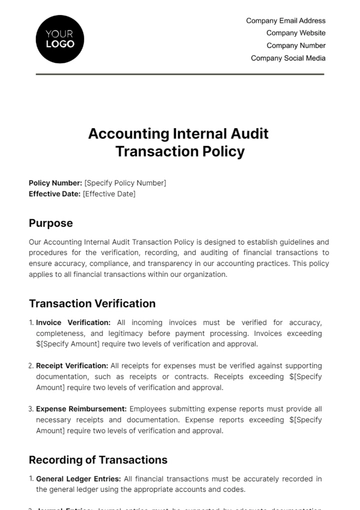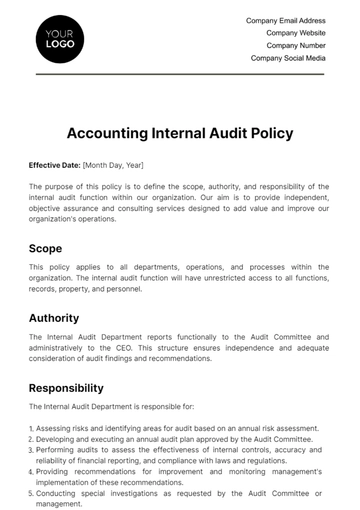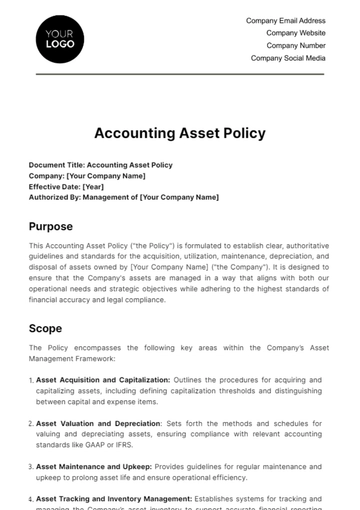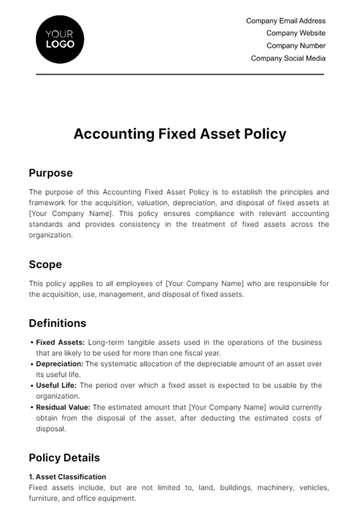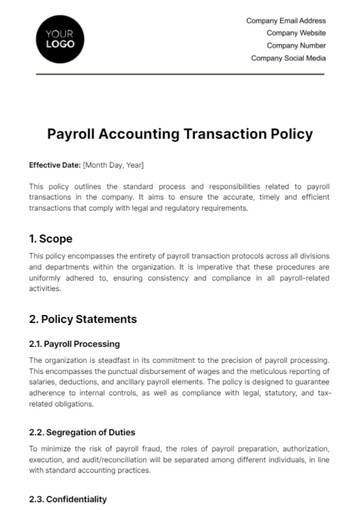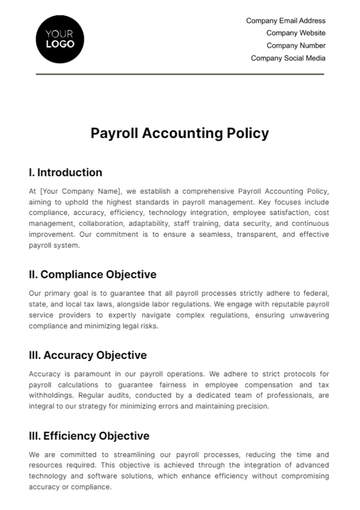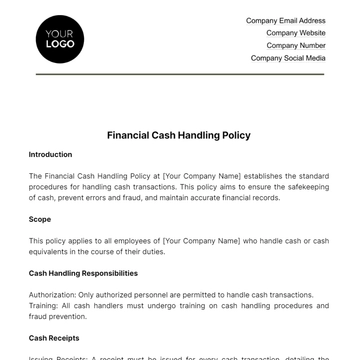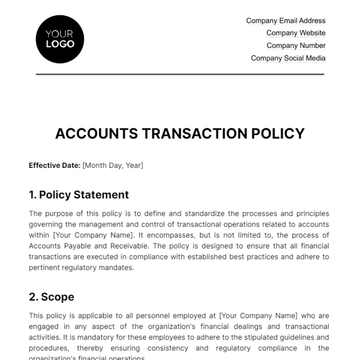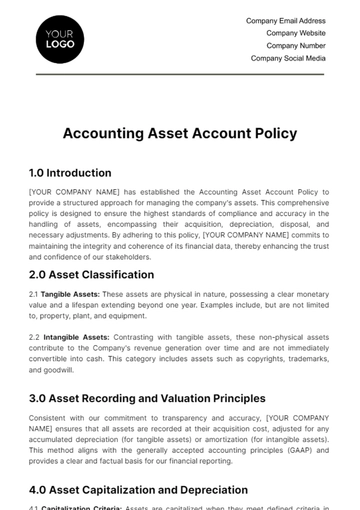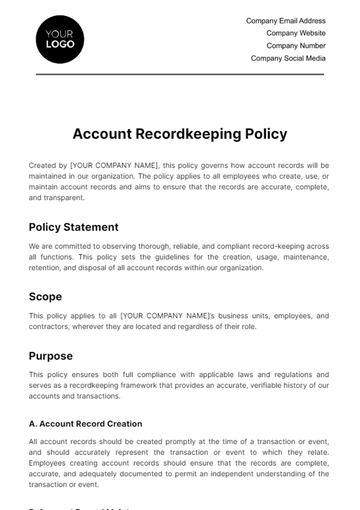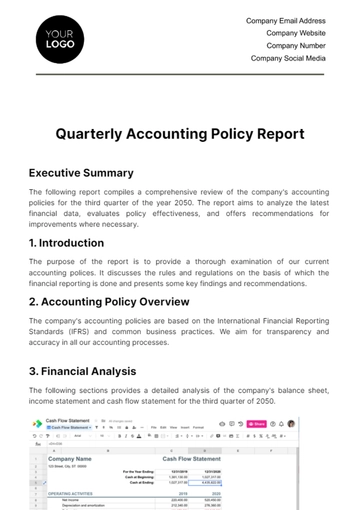Free Account Control Policy
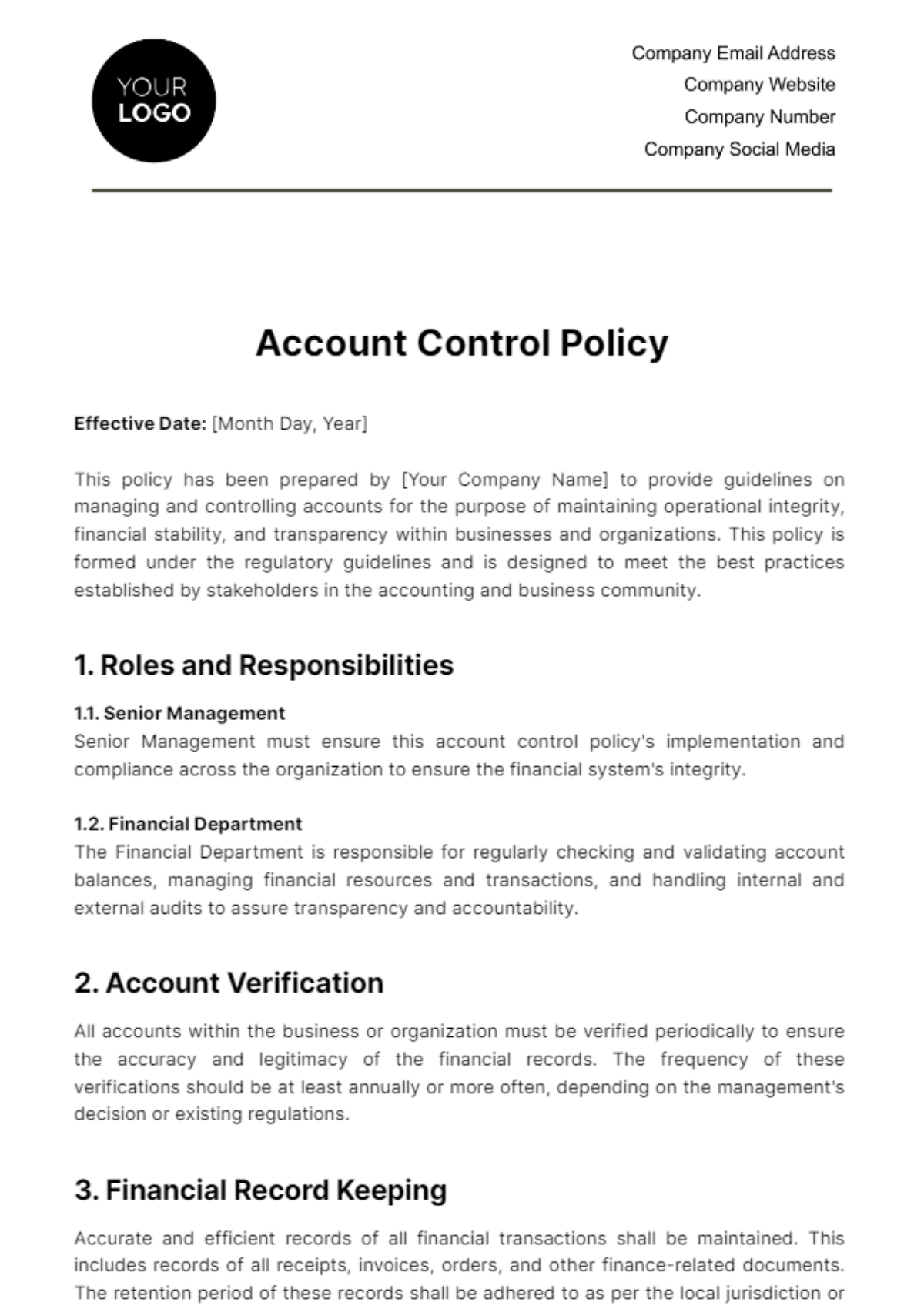
Effective Date: [Month Day, Year]
This policy has been prepared by [Your Company Name] to provide guidelines on managing and controlling accounts for the purpose of maintaining operational integrity, financial stability, and transparency within businesses and organizations. This policy is formed under the regulatory guidelines and is designed to meet the best practices established by stakeholders in the accounting and business community.
1. Roles and Responsibilities
1.1. Senior Management
Senior Management must ensure this account control policy's implementation and compliance across the organization to ensure the financial system's integrity.
1.2. Financial Department
The Financial Department is responsible for regularly checking and validating account balances, managing financial resources and transactions, and handling internal and external audits to assure transparency and accountability.
2. Account Verification
All accounts within the business or organization must be verified periodically to ensure the accuracy and legitimacy of the financial records. The frequency of these verifications should be at least annually or more often, depending on the management's decision or existing regulations.
3. Financial Record Keeping
Accurate and efficient records of all financial transactions shall be maintained. This includes records of all receipts, invoices, orders, and other finance-related documents. The retention period of these records shall be adhered to as per the local jurisdiction or industry-specific regulation.
4. Audits
Audit processes are integral to this policy. Both internal and external audits will be conducted to ensure compliance with this policy, prevent fraud, detect discrepancies and establish financial accountability.
5. Prevention of Fraud and Error
Anti-fraud measures, such as two-factor authentication, secure access controls, and regular account monitoring, will be implemented to detect any anomalies and mitigate possible fraud or error.
6. Amendments
6.1. Periodic Review and Amendment Process
This policy will undergo periodic reviews to ensure its continued relevance and effectiveness in meeting the needs of our organization. The amendment process will address any changes in operational requirements, legal obligations, and ethical considerations that impact the organization and its stakeholders.
6.2. Consideration of Implications
Amendments will be carefully evaluated to understand their operational, legal, and ethical implications. This ensures that changes are beneficial and aligned with the organization's goals, compliance requirements, and ethical standards.
6.3. Approval of Amendments
Any proposed amendments to this policy must receive formal approval from the designated authority within the organization. This step ensures that all modifications undergo a rigorous vetting process before implementation.
6.4. Communication Strategy
Following the approval of amendments, a detailed communication plan will be executed to inform all organizational members about the changes. This strategy is designed to ensure clarity, prevent misunderstandings, and foster compliance with the revised policy.
7. Complaints and Reporting
All complaints and issues related to account control should be reported under the confidential Whistleblower framework to protect the reporter while ensuring complete transparency and resolution of any issues.
This policy has been made by and under [Your Company Name]. We are open for any discussions or clarifications anytime regarding the policy.
- 100% Customizable, free editor
- Access 1 Million+ Templates, photo’s & graphics
- Download or share as a template
- Click and replace photos, graphics, text, backgrounds
- Resize, crop, AI write & more
- Access advanced editor
Presenting Template.net’s premier Account Control Policy Template! This editable and customizable template is designed to streamline your commerce duties and aid in efficient financial management. Designed with your needs in mind, our template is seamlessly editable in our Ai Editor Tool. With a few simple clicks, you can add, delete and modify elements to suit your unique business requirements.
You may also like
- HR Policy
- Restaurant Policy
- Company Policy
- Accounting Policies and Procedures
- Website Policy
- Privacy Policy
- Safety Policy
- School Policy
- IT and Software Policy
- Law Firm Policy
- Construction Policy
- Interior Design Policy
- Travel Agency Policy
- Education Academic Policy
- Security Policy
- Real Estate Policy
- Expense Policy
- Software Policy

